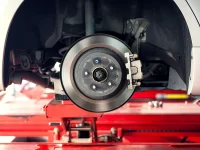Essential Documents for Purchasing a Used Car: A Checklist

Purchasing a used car involves more than just handing over the money and driving away. It requires several important documents to ensure a smooth and legal transaction. Whether buying from a dealership or a private seller, understanding the necessary paperwork is crucial. From compact cars to SUVs, used cars in reno dealerships offer something for every type of driver.
- Vehicle Title (Certificate of Title)
The vehicle title is perhaps the most critical document when buying a used car. It serves as proof of ownership and contains essential information about the vehicle, including the Vehicle Identification Number (VIN), make, model, year, and current odometer reading. Ensure that the seller provides you with the original title, free of any liens or encumbrances, to facilitate the transfer of ownership.
- Bill of Sale
A bill of sale is a legally binding document that records the sale transaction between the buyer and the seller. It includes details such as the names and addresses of both parties, the purchase price, the date of sale, and a description of the vehicle being sold. Having a properly executed bill of sale is crucial for both parties to protect their interests and establish a clear record of the transaction.
- Vehicle History Report
While not a legal document per se, obtaining a vehicle history report is highly recommended when buying a used car. This report provides valuable information about the vehicle’s past, including its ownership history, accident history, title status, and any reported damage or mechanical issues. Reviewing the vehicle history report can help you make an informed decision and avoid purchasing a car with undisclosed problems.
- Valid Identification
As the buyer, you’ll need to provide valid identification to complete the purchase transaction. Acceptable forms of identification typically include a driver’s license, passport, or state-issued ID card. The seller may also request a copy of your identification for their records, especially if you’re paying with a personal check or financing the purchase through a bank or lender.
- Vehicle Registration and Insurance
After purchasing a used car, you’ll need to register it with the appropriate state or local authorities. This process involves completing the necessary paperwork, paying the registration fees, and obtaining license plates for the vehicle. Additionally, you’ll need to arrange for auto insurance coverage before driving the car legally on public roads. Proof of insurance is often required when registering the vehicle and obtaining license plates.
Searching for a reliable used cars in reno? Look no further than the city’s reputable dealerships.







